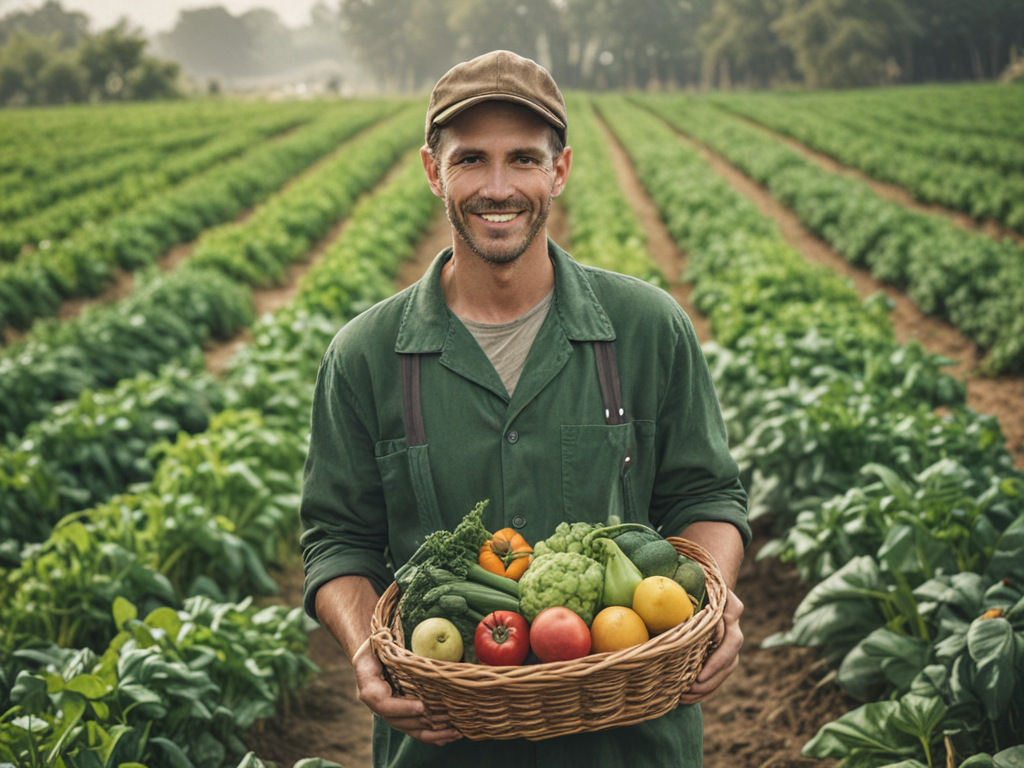
Metaphorically speaking, sustainability in food production is the quiet hero that guarantees a harmonious balance between nourishing our population and safeguarding our planet. The intricate web of decisions and practices that go on behind the scenes in the food industry holds far-reaching implications for our environment, economy, and health. As we explore the multifaceted impact of sustainable approaches in food production, we begin to uncover a tapestry of interconnected benefits that extend beyond what meets the eye. Stay tuned as we unravel the layers of sustainability in food production and discover the transformative power it holds.
Importance of Sustainable Practices
Importantly, sustainable practices in food production play a significant role in ensuring environmental conservation and long-term food security. By implementing sustainable methods, we prioritize the health of our planet and future generations. Environmental conservation is at the core of sustainable food production. Through practices such as organic farming, reducing chemical pesticide use, and promoting biodiversity, we can protect ecosystems and wildlife habitats. Social responsibility is also a key aspect of sustainability in food production. By supporting local farmers, fair trade practices, and ensuring humane treatment of animals, we contribute to building healthier communities and a more equitable food system. Embracing sustainability in food production is not just a choice; it is a responsibility we owe to our planet and society. Together, through conscious decisions and collective actions, we can create a more sustainable future for all. Let’s commit to making a positive impact through our food choices and support practices that benefit both the environment and our communities.
Reduction of Carbon Footprint
In aiming for sustainability in food production, a major focus lies on reducing the carbon footprint associated with agricultural practices. Implementing strategies to decrease carbon emissions is important for the environment and the future of food production. Here are some key ways in which this reduction is being achieved:
- Carbon Offset Programs: Engaging in carbon offsetting initiatives helps balance out carbon emissions by investing in projects that reduce greenhouse gases.
- Energy-Efficient Practices: Implementing energy-efficient technologies and practices, such as using renewable energy sources or optimizing transportation routes, can greatly reduce the carbon footprint of food production processes.
- Sustainable Farming Techniques: Adopting sustainable farming methods like crop rotation, conservation tillage, and agroforestry not only enhances soil health but also helps in sequestering carbon from the atmosphere.
Support for Local Farmers
Support for local farmers plays a pivotal role in fostering community resilience and promoting sustainable food systems. By engaging in community partnerships and supporting local producers, we contribute to economic growth while ensuring the availability of fresh, high-quality products. Local farmers are the backbone of our food supply chain, and investing in their success has far-reaching benefits for everyone involved.
| Benefits of Supporting Local Farmers |
|---|
| 1. Community Resilience: Local farmers provide a reliable source of fresh produce, reducing dependency on external suppliers. |
| 2. Economic Growth: Investing in local farmers stimulates the local economy and creates job opportunities within the community. |
| 3. Promoting Sustainable Practices: Supporting local farmers often means supporting sustainable farming methods that benefit the environment. |
| 4. Quality Assurance: By buying from local farmers, consumers can trust the quality and freshness of the products they are purchasing. |
Ethical Sourcing Initiatives
Ethical sourcing initiatives play an important role in ensuring transparency and accountability throughout the food production supply chain. By prioritizing fair trade practices, companies can support farmers and workers in developing countries, ensuring they receive fair compensation for their labor. This not only helps improve the livelihoods of these individuals but also promotes sustainable practices within the supply chain.
- Fair Trade Certification: Companies that obtain fair trade certification adhere to strict standards that guarantee fair wages and humane working conditions for farmers and workers involved in food production.
- Traceability: Implementing traceability measures in the supply chain allows consumers to track the journey of their food products, fostering trust and confidence in the ethical sourcing practices of the company.
- Collaboration: Collaborating with local communities and suppliers to establish ethical sourcing initiatives strengthens relationships and promotes a sense of shared responsibility towards creating a more sustainable and equitable food system.
Waste Reduction Strategies
How can food production companies implement effective waste reduction strategies to enhance sustainability and reduce environmental impact? Implementing composting systems and recycling initiatives can notably reduce organic and packaging waste. Composting systems break down organic waste into nutrient-rich compost, which can be reused in agricultural practices, closing the loop on food waste. Recycling initiatives make certain that materials like plastics and metals are diverted from landfills, conserving resources and reducing greenhouse gas emissions.
Another key strategy is food surplus redistribution, where excess food is donated to food banks or organizations instead of being discarded. This not only reduces waste but also helps alleviate hunger in communities. Additionally, exploring packaging alternatives such as compostable or recyclable materials can further reduce the environmental footprint of food production.
Future of Sustainable Food Production
Looking ahead, the evolution of sustainable food production is poised to revolutionize the industry’s practices and shape the future of agriculture. Incorporating innovative technologies will play a vital role in enhancing efficiency and reducing environmental impact. Global partnerships are set to foster collaboration on a scale never seen before, allowing for the sharing of knowledge and resources to drive sustainable practices worldwide. Additionally, consumer awareness and demand for ethically produced food are expected to continue rising, pushing the industry towards more sustainable methods.
- Harnessing cutting-edge technologies
- Embracing collaboration through global partnerships
- Meeting the growing consumer demand for sustainability
With these advancements on the horizon, the future of sustainable food production holds promise for a more environmentally conscious and socially responsible food system. By embracing innovation and fostering global cooperation, we can work towards a future where food production is not only sustainable but also meets the needs of generations to come.











